Search Results
Showing results 21 to 40 of 93

Leaf it to Me
Source Institutions
In this activity, learners observe the effect of transpiration as water is moved from the ground to the atmosphere.

Super Soil
Source Institutions
In this outdoor activity, learners make their own organic-rich soil. Depending on where this activity is done, learners will probably discover that their local soil is low in organic matter.
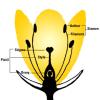
Partners in Pollination
Source Institutions
In this activity, learners identify the reproductive parts of plants and the animal (bee) structures involved in pollination.
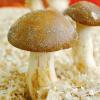
Home Mycology Lab
Source Institutions
Agriculturalists have long considered mushroom growing a challenge, largely because you need a piece of benchtop equipment known as a laminar flow hood.

The Water Cycle
Source Institutions
Did you know that the water we use today is the same water found on Earth millions of years ago? The Earth constantly uses and recycles water in a process called the water cycle.
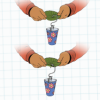
Breaking Point
Source Institutions
In this activity, learners build penetrometers to test leaf toughness. Biologists measure leaf toughness to study the feeding preferences of insects and bugs.
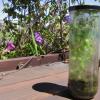
The Self-Watering Terrarium
Source Institutions
In this biology/ecology activity, learners construct a terrarium out of a tennis ball container. This terrarium is unique because it never has to be watered.
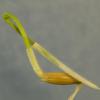
Germination Station
Source Institutions
In this botany activity, learners will create an experiment about seed germination. This activity gives students an opportunity to explore how seeds germinate and react to surrounding conditions.

BioBlitz
Source Institutions
In this activity (on page 2 of the PDF under GPS: Biodiversity Activity), learners will pair up and take a notebook outdoors to a selected location to observe and record a list of living things that t
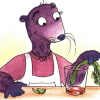
Veggies with Vigor
Source Institutions
In this activity, learners try to revive wilted celery. Learners discover that plants wilt when their cells lose water through evaporation. Use this activity to introduce capillary action.
The Water (Hydrologic) Cycle: Transpiration
Source Institutions
In this lab, learners grow broad bean (also called fava bean) plants in three EarthBoxes for a few weeks before exposing one to wind (using a fan), another to heat (using a lamp), and the third to not
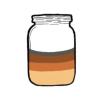
Soil Density
Source Institutions
In this activity, learners will test soil content using their sample, some water and a container that seals.
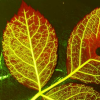
Lighting Up Celery Stalks
Source Institutions
In this activity, learners conduct a series of hands-on experiments that demonstrate how the working of plants' veins, known as capillary action, enables water to travel throughout the length of a pla
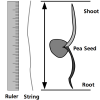
Easy PEAsy Seed Germination
Source Institutions
In this activity, learners determine the necessary conditions for pea seed germination.
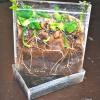
CD Greenhouse
Source Institutions
In this activity, learners plant seeds and watch them sprout and grow inside a CD case.

Super Soaker
Source Institutions
In this activity (page 1 of the PDF under SciGirls Activity: Bogs), learners will test cups full of potting soil, sand, and sphagnum moss to see which earth material is able to soak up the most water.

Make a Terrarium
Source Institutions
In this activity, learners make a miniature greenhouse or "terrarium" to explore the greenhouse effect.
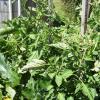
A Balancing Act
Source Institutions
In this plant science activity, learners role play as vegetables and weeds competing for nutrients.

Mystery Marauders
Source Institutions
In this outdoor, mystery-solving activity, learners work like detectives, gathering evidence to identify the culprits that are attacking plants.

Water Cycle in a Bag
Source Institutions
In this activity, learners create a biosphere in a baggie.
